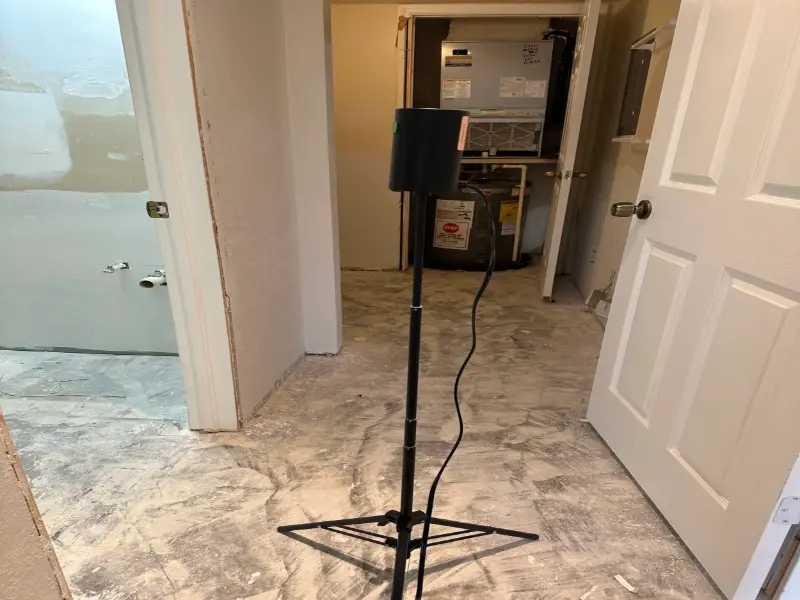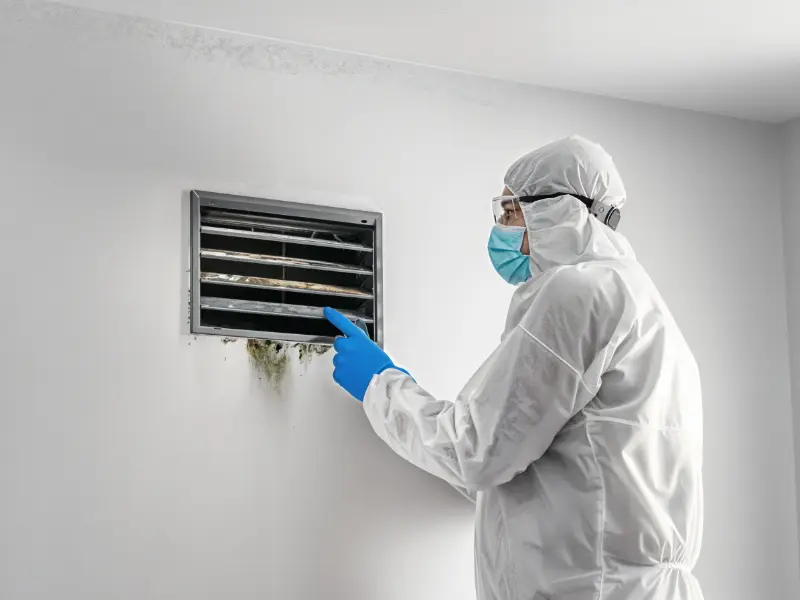Call for Immediate Assistance
Call for Immediate Assistance

Breathe Cleaner Air
Poor indoor air quality can impact your health, causing allergies, respiratory issues, and persistent odors. Hidden contaminants like mold spores, dust, and airborne pollutants may be circulating in your home without you realizing it. Our indoor air quality testing services identify potential hazards and provide solutions to create a cleaner, healthier environment. We help you understand what’s in your air and how to improve it.
Air quality isn’t just about comfort—it’s about health. Contaminants like mold, dust, and VOCs can affect your well-being without visible signs. Schedule an air quality test today to get a clear picture of your indoor environment.
Understanding the Risks
Everyday activities, hidden moisture problems, and poor ventilation contribute to unhealthy indoor air. Exposure to airborne contaminants can lead to allergy symptoms, respiratory irritation, and long-term health concerns.
Mold spores, dust mites, pet dander, and chemical pollutants are common air quality threats. Mold growth in walls, contaminated HVAC systems, or high humidity levels allow these particles to thrive, reducing air quality and creating an unhealthy indoor environment.
Air quality testing provides real data on pollutants in your space. Whether you’re experiencing allergy-like symptoms, noticing unusual odors, or concerned about past water damage, professional testing pinpoints air quality issues and helps you determine the best steps for a cleaner, healthier home.

A professional indoor air quality test goes beyond simple dust checks. Our experts use state-of-the-art technology to detect pollutants and assess potential risks. Here’s what to expect during a thorough inspection:
Each test provides detailed, lab-certified results so you can make informed decisions about improving your air quality and protecting your health. Our team explains the results clearly and offers expert recommendations, from simple ventilation improvements to more advanced air purification solutions. With a complete understanding of your indoor air quality, you’ll know exactly what steps to take for a healthier home.
Improving Indoor Air
Once you know what’s in your air, taking steps to improve indoor air quality can make a significant difference in your health and comfort. Small changes and routine maintenance can help keep your indoor environment fresh, clean, and safe.
Ventilation is one of the most effective ways to improve air quality. Opening windows, using exhaust fans, and ensuring proper airflow reduces pollutants and prevents indoor air from becoming stale. Replacing HVAC filters regularly also plays a crucial role in keeping airborne contaminants from circulating in your home. A high-quality HEPA filter can trap dust, pet dander, and mold spores, improving overall air purity.
Controlling humidity levels is another key factor in preventing mold and allergens from thriving. Using dehumidifiers, fixing leaks promptly, and running air conditioners properly help maintain balanced moisture levels. Keeping surfaces and vents clean further reduces the buildup of dust and airborne particles.
If your air quality test detects mold, chemicals, or other pollutants, additional steps may be needed. Professional air purification systems, duct cleaning, and mold remediation can significantly improve indoor air safety. Whether you’re dealing with existing air quality concerns or want to take proactive steps to maintain a healthier home, indoor air testing gives you the knowledge to breathe easier and live better.
© 2025 Gulf Coast Mold Assessing & Remediation, All Rights Reserved
Web design and digital marketing by Water Restoration Marketing